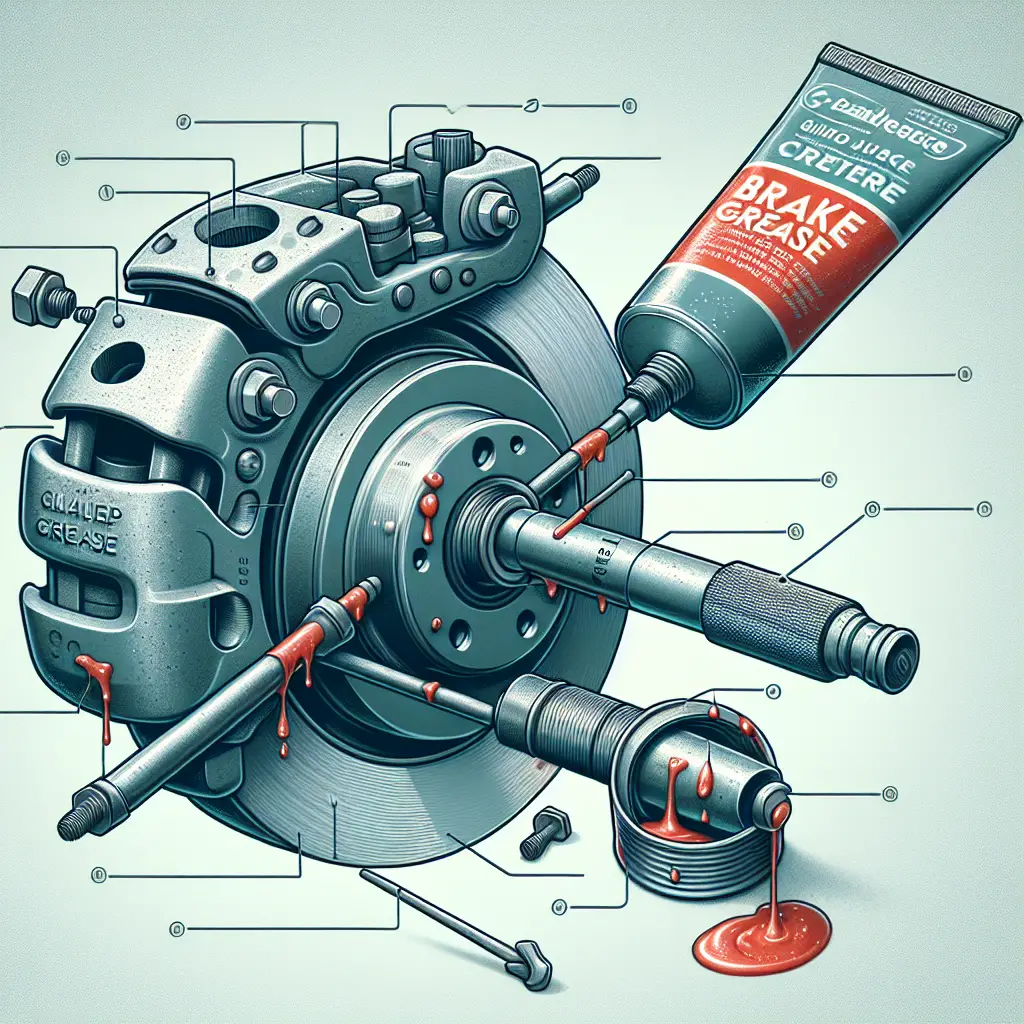What Grease to Use on Brake Caliper Pins: A Comprehensive Guide
When it comes to vehicle maintenance, the right lubrication for the right parts can mean the difference between smooth operation and costly repairs. This is especially true for brakes – arguably the most critical safety component in your car. An often overlooked yet vital part of brake maintenance is lubing the brake caliper pins. But what grease should you use?
Knowing which grease to use on brake caliper pins could extend the life of your brakes and ensure their optimal function. There’s a myriad of products available, and selecting the best can be overwhelming. In this guide, we’ll break down the essentials, so you can make an informed decision and keep your brakes in top-notch condition.
What Are Brake Caliper Pins?
Firstly, let’s understand what we’re dealing with. Brake caliper pins are integral to the floating caliper braking system. They allow the caliper to move smoothly when the brake pedal is pressed, ensuring even wear on the brake pads. Over time, these pins can become dry and lead to uneven brake pad wear, noise, and potentially, braking failure.
The Criteria for the Right Grease
High-Temperature Resistance
Brakes generate considerable heat when in use, hence the lubricant in use must maintain its properties under high temperatures. Failure to use a high-temp grease can result in the lubricant melting away, leaving the metal exposed to corrosion and wear.
Water Resistance
Moisture can be a brake system’s worst enemy. The grease needs to be water-resistant to protect the pins from rust and corrosion caused by water and other contaminants.
Non-Reactive With Rubber
Brake systems often contain rubber components like dust boots or seals. The grease must be non-reactive with rubber, or else it could cause these parts to swell, crack, or degrade, compromising the braking system’s integrity.
Consistency
The right grease should have a consistently smooth texture and should not harden over time, ensuring smooth operation of the caliper pins for extended periods.
Types of Grease for Brake Caliper Pins
Silicone-Based Grease
Silicone grease is one of the most popular choices for brake caliper pins. It provides excellent high-temperature resistance, won’t react with rubber, and stays consistent over time. A product like Dielectric Grease is an example of silicone grease suitable for brake caliper pins.
Synthetic Grease
Synthetic greases, such as polyurea-based, work well under a variety of conditions and are known for their durability. An example of this would be Super Lube Synthetic Grease, which is widely recommended for its superior resistance to high temperatures and long-lasting lubricating properties.
Mineral-Based Grease
Although not always recommended, some mechanics use mineral-based grease for caliper pins. Lithium or lithium complex grease can be a decent choice if it’s high-temperature grade. However, pay close attention to the compatibility with rubber components before using mineral-based greases.
What to Avoid
Avoid using petroleum-based or multipurpose greases on brake caliper pins. These may not withstand the heat generated by the brakes, potentially damaging the rubber components and leading to failure.
How to Apply Grease to Caliper Pins
Step-by-Step Guide:
- Safety First: Ensure your car is securely lifted using jack stands and the parking brake is set.
-
Remove the Caliper: Loosen the caliper slide bolts and carefully remove the caliper from the bracket.
-
Extract the Pins: Pull the pins out of the caliper bracket.
-
Clean Thoroughly: Clean the pins and the holes in the caliper bracket with a brake cleaner to remove old grease and debris.
-
Apply the Grease: Take your selected grease and apply a thin, even coating on the pins. Avoid over-lubricating, which could lead to dust and dirt build-up.
-
Reassemble: Insert the pins back into the caliper bracket and reattach the caliper. Ensure all parts move freely without binding.
-
Complete the Job: Perform the same maintenance on the other side, then carefully lower your car to the ground. Test your brakes afterwards to check for proper operation.
Conclusion
Proper maintenance and lubrication of brake caliper pins are crucial for brake longevity and performance. Silicone-based and synthetic greases are generally safe bets for this purpose due to their ability to withstand high temperatures and not degrade rubber components.
Remember to always consult your vehicle’s manual or a trusted automotive professional for specific product recommendations tailored to your car. Nonetheless, our overview gives you the groundwork for understanding what’s needed in a quality brake caliper pin grease.
Regular brake maintenance, including re-lubing the brake caliper pins, can’t be understated. By taking the time to select the right product and properly apply it, you’re investing in the safety and reliability of your vehicle’s braking system.
For more insightful automotive tips and information, stay tuned to our blog – your ultimate guide to car care and maintenance.

